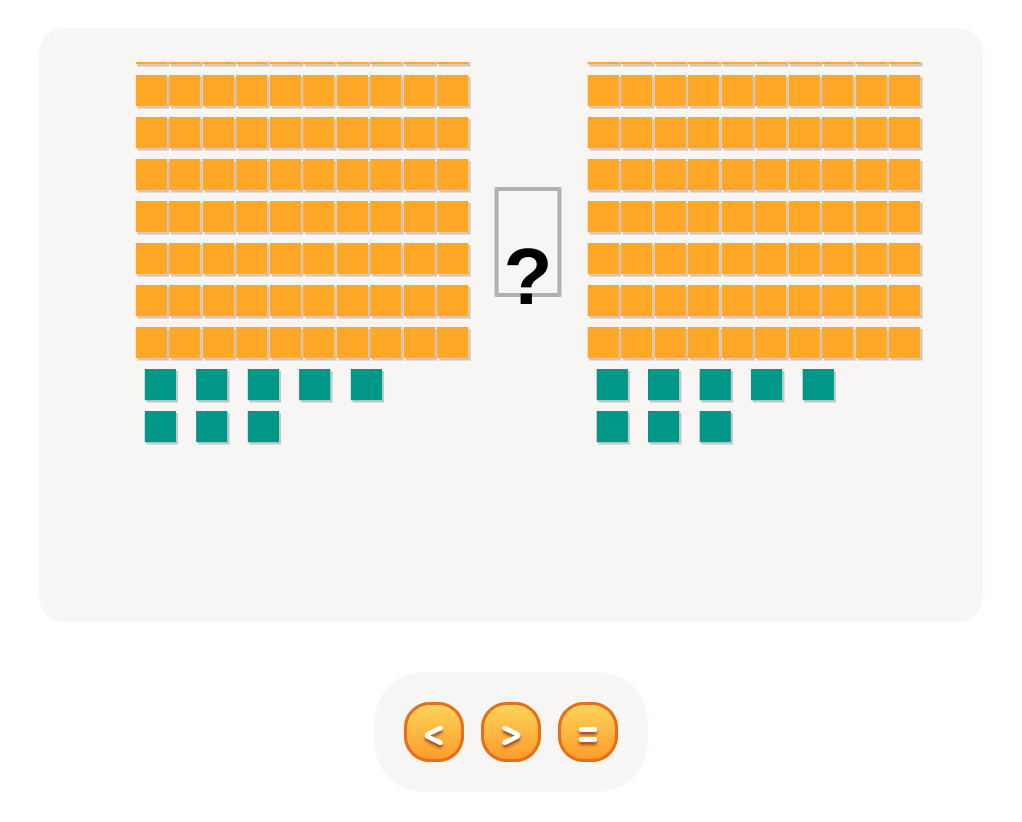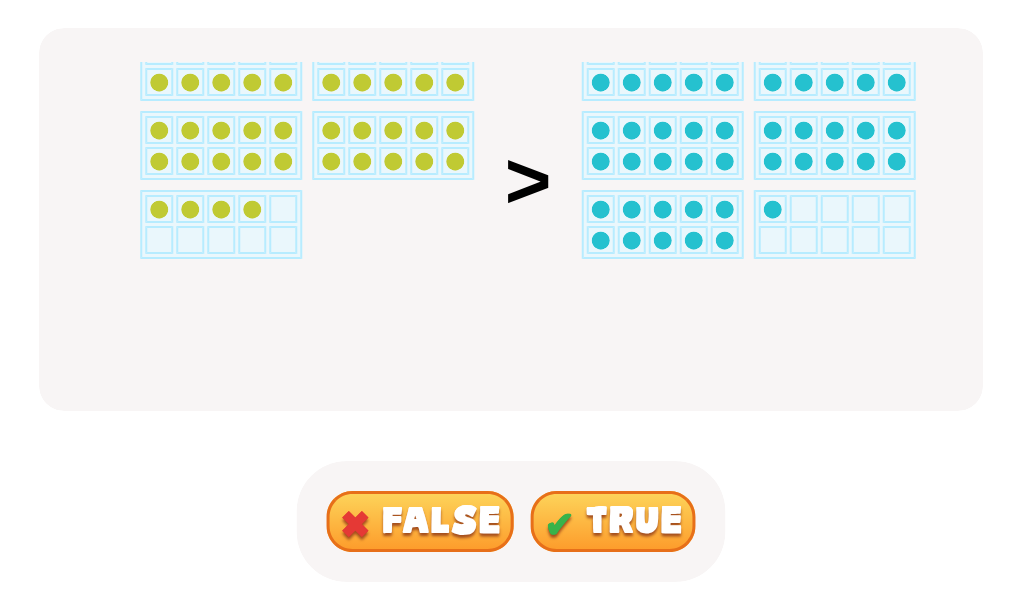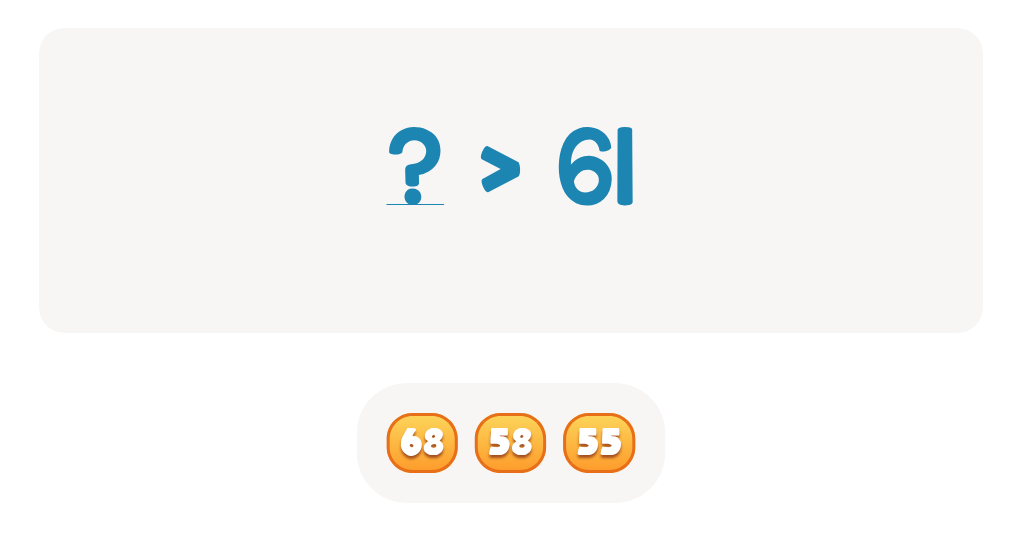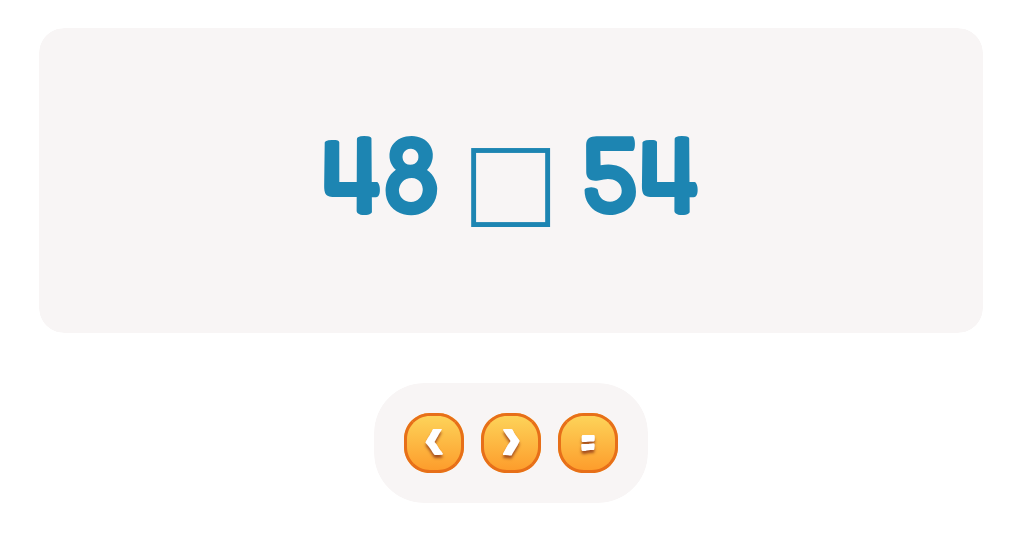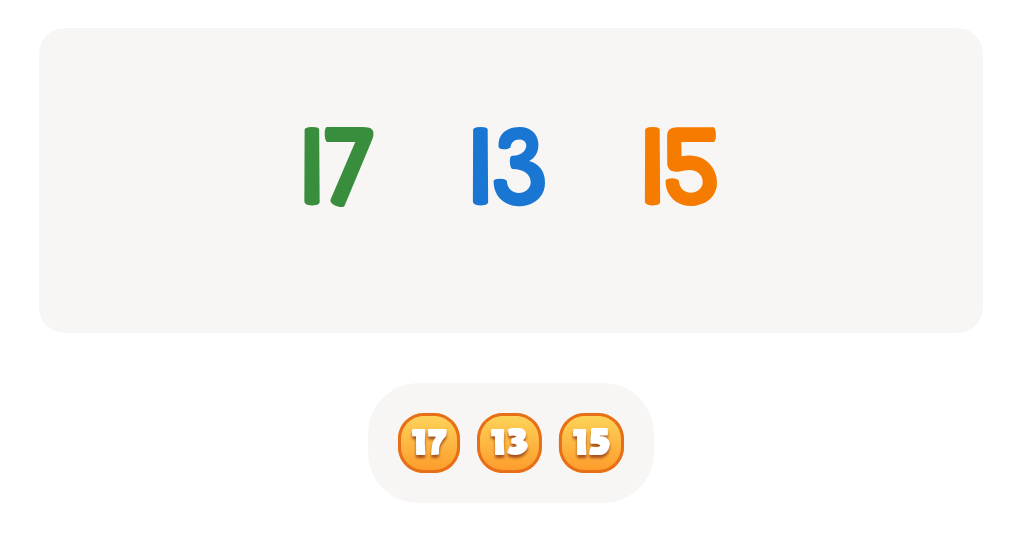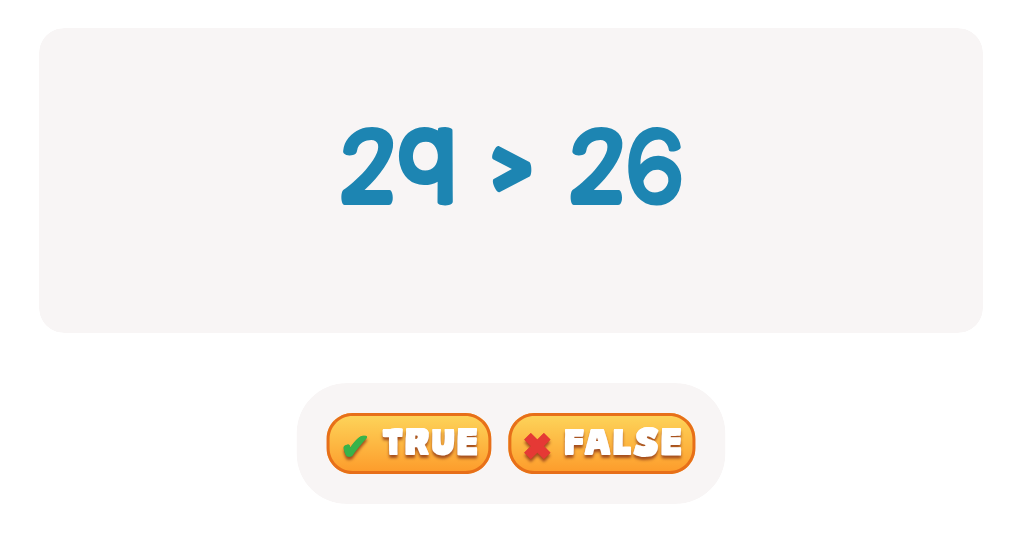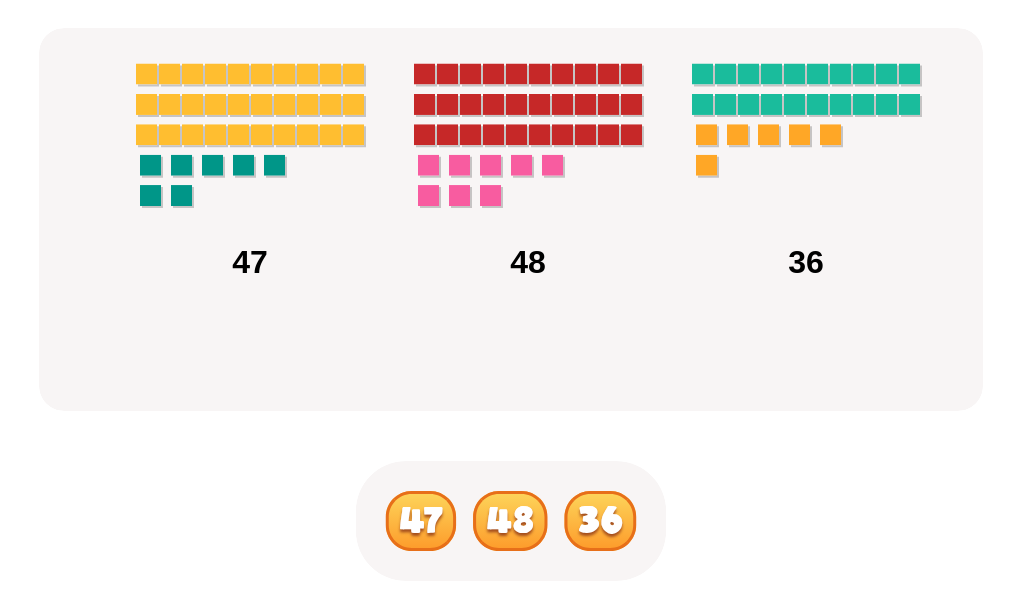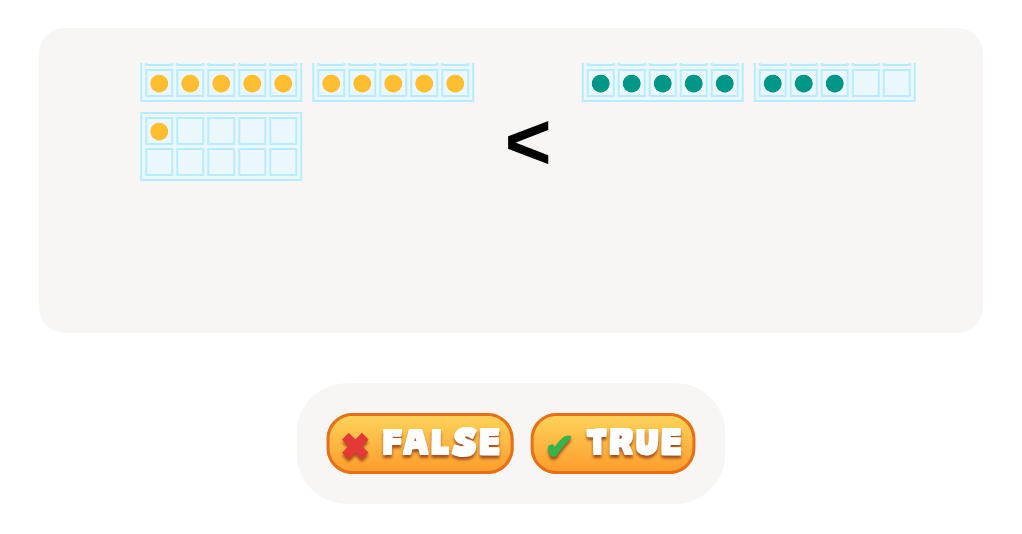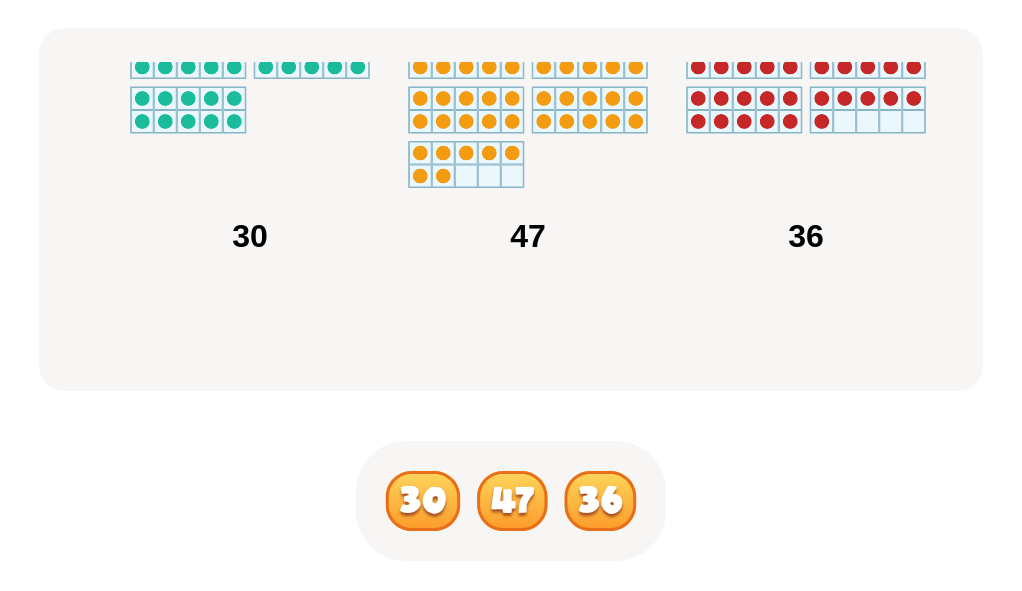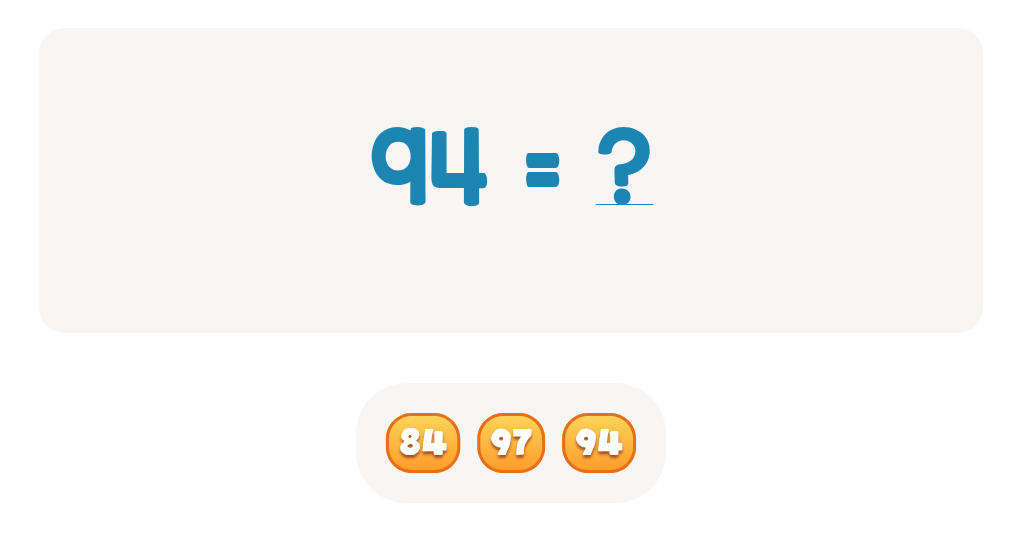Developing analytical thinking Comparing Numbers Worksheets for Ages 4-8
3 filtered results
-
From - To
Unlock your child's potential with our "Comparing Numbers Worksheets" designed for ages 4-8! Fostering analytical thinking, these engaging worksheets help young learners enhance their number comparison skills through fun and interactive activities. By evaluating different quantities, children develop critical thinking, problem-solving, and reasoning abilities in a playful context. Our resources are tailored to meet the developmental needs of early learners, allowing them to practice distinguishing between greater and lesser values while building a solid mathematical foundation. Perfect for home or classroom use, these worksheets empower kids to gain confidence in their numerical understanding, setting them on the path towards academic success.
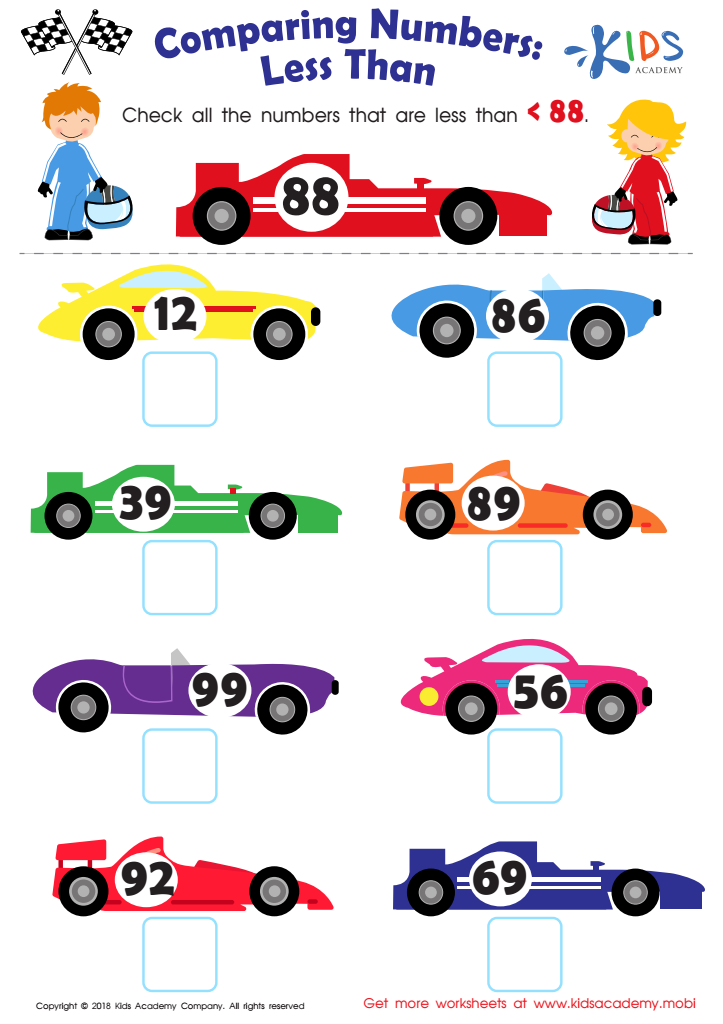

Less Than Worksheet
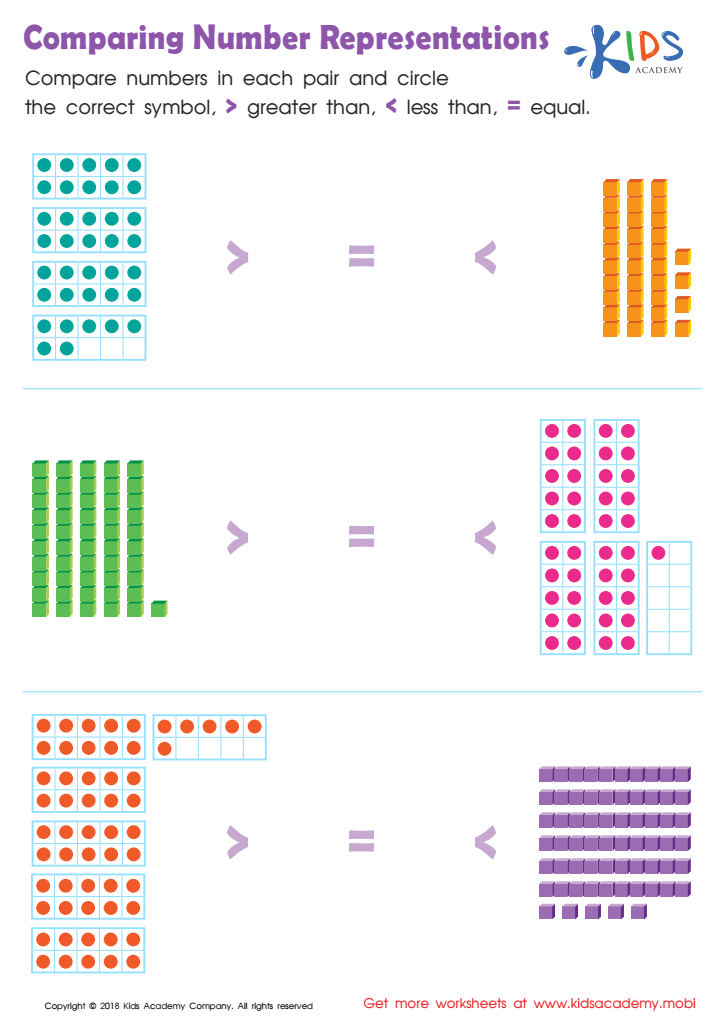

Comparing Number Representations Worksheet
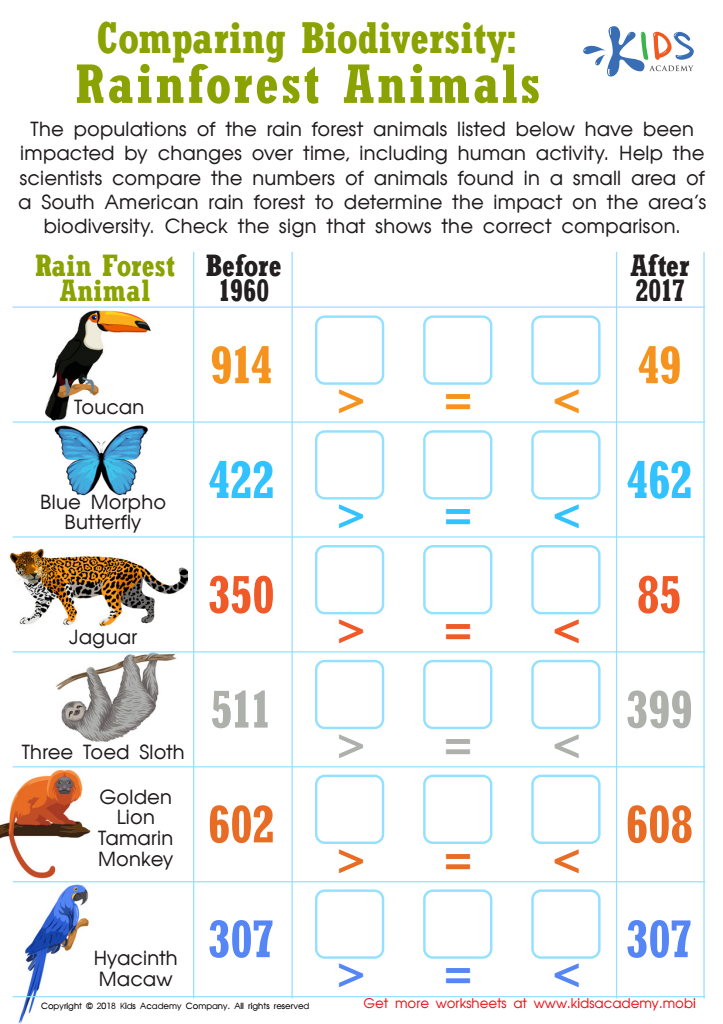

Comparing Biodiversity: Rainforest Animals Worksheet
Developing analytical thinking skills through comparing numbers is crucial for children aged 4-8, as it lays the foundation for essential mathematical understanding and problem-solving abilities. During these formative years, children are naturally curious and eager to learn, making it an ideal time to introduce concepts that foster critical thinking. By engaging in activities that involve comparing numbers, children learn to recognize patterns, make predictions, and draw conclusions based on their observations.
This process encourages them to think logically and analytically. As they learn to differentiate between quantities, they also develop skills that go beyond mathematics, such as decision-making and reasoning. These capabilities are integral for success in later learning stages and daily life, where comparisons and evaluations are frequent.
Furthermore, promoting analytical thinking enriches children's confidence in tackling complex problems and enhances their communication skills, as they learn to articulate their reasoning. For parents and teachers, fostering these skills can lead to a more interactive and engaging learning environment, encouraging collaboration and exploration among children. Ultimately, comparing numbers serves as a gateway to deeper understanding in mathematics and promotes lifelong skills that will benefit learners well beyond the classroom.

 Assign to My Students
Assign to My Students
